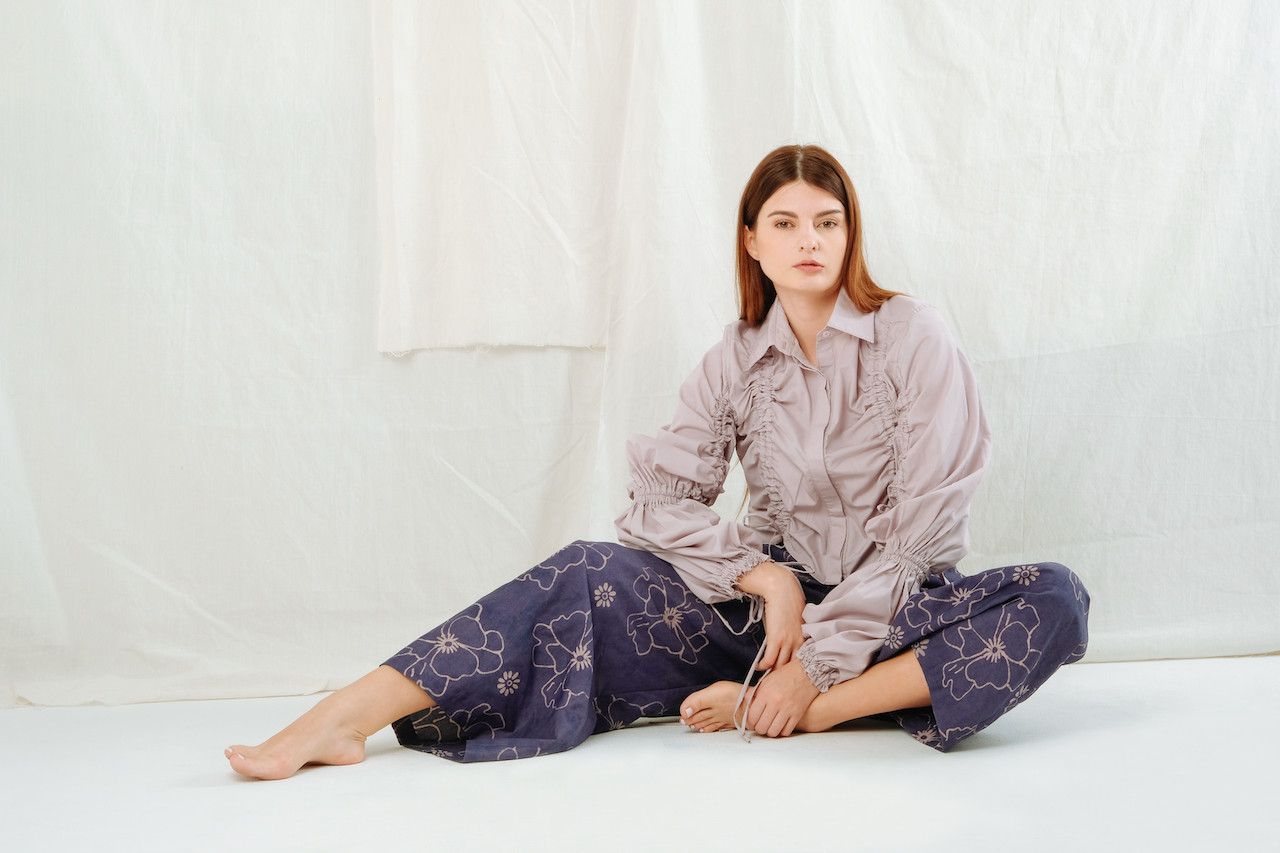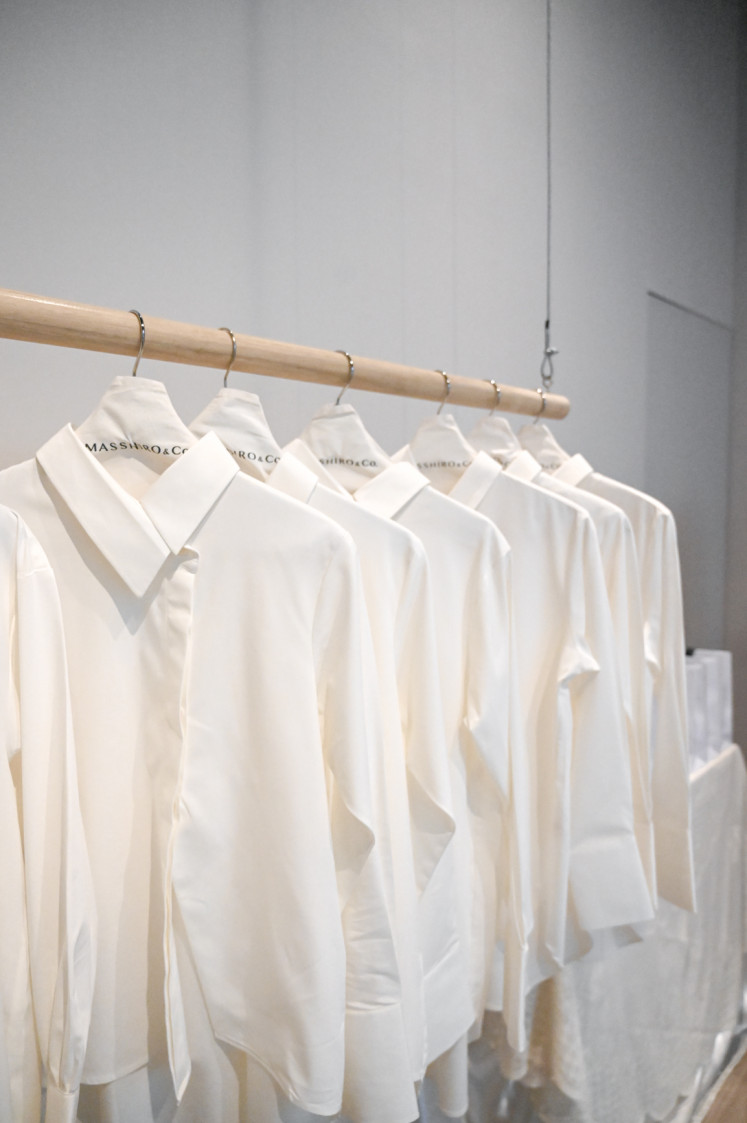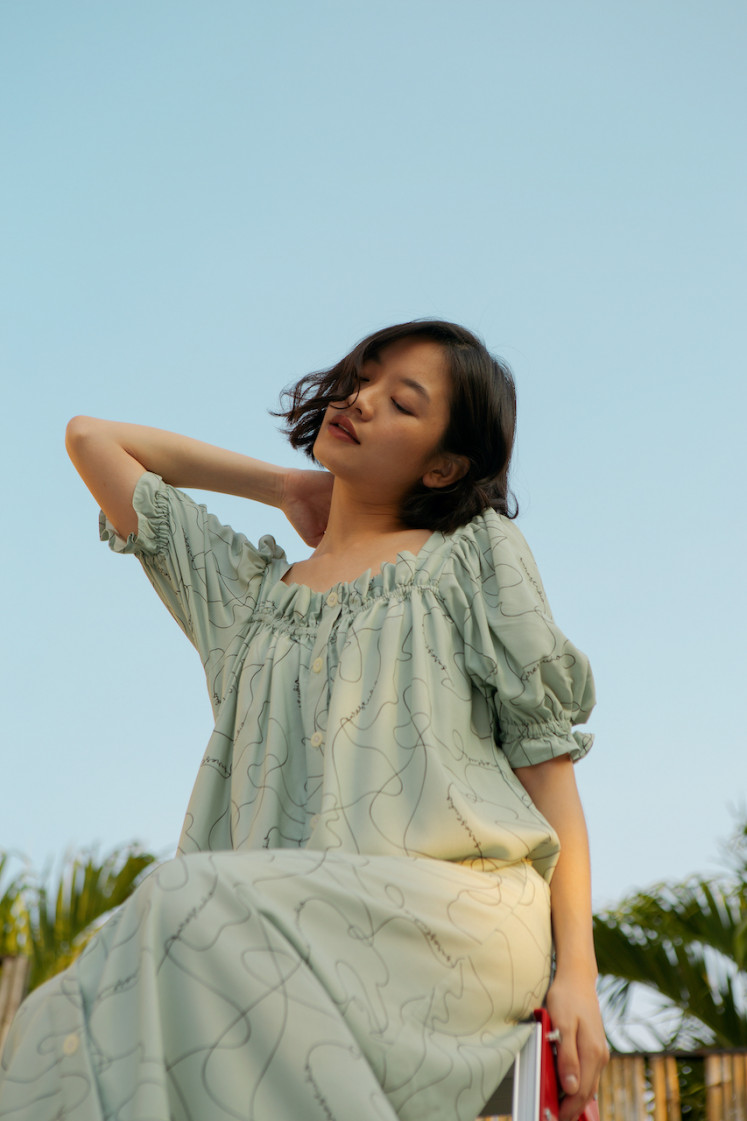Popular Reads
Top Results
Can't find what you're looking for?
View all search resultsPopular Reads
Top Results
Can't find what you're looking for?
View all search resultsFashion labels join hands with natural fiber producers to lure eco-conscious shoppers
Many fashion labels are joining hands with natural fiber producers such as Lenzing Group and Asia Pacific Rayon (APR) to create fashion items that eco-conscious consumers find suitable for them.
Change text size
Gift Premium Articles
to Anyone
W
e might have heard the saying “crisis is the mother of invention” more often recently, as the current situation prompts us to find new ways to live our lives.
In different aspects of life, including fashion, we see that fashion labels and fashion enthusiasts alike are taking sustainable materials into consideration. We also become aware of companies that produce natural fibers for the textile industry, which help provide environmentally friendly materials for fashion labels.
As a result, many fashion labels are joining hands with natural fiber producers such as Lenzing Group and Asia Pacific Rayon (APR) to create fashion items that eco-conscious consumers find suitable for them.
Indonesian brand MASSHIRO&Co., for instance, introduced MATTERS by MASSHIRO&Co. collection on Nov. 19 at its flagship store located in ASHTA at District 8 SCBD, South Jakarta. The collection, comprising white shirts for women, which are the label’s specialty, are made using Lenzing’s TENCEL Modal natural fibers.
The TENCEL Modal fibers that are used for the MATTERS collection are made of wood pulp, in which the wood originates from industrial plantations that are sustainably managed and FSC or PEFC certified.
A statement released by TENCEL explained that its natural fibers are made through a process that applies a closed-loop production concept.
The process transforms pulp into cellulose fibers, optimizing available resources and re-processing waste to become the energy that fuels the next production. Furthermore, the use of natural materials allows the clothing items to easily biodegrade when they are no longer in use, and then buried in soil, hence reducing waste pollution.
Fashion staple: Specializing in white shirts for women, MASSHIRO&Co. launched its new collection “MATTERS”, which is created using TENCEL fibers. Each item in the collection has long sleeves, with sleek and slightly oversized silhouettes. (Courtesy of/bcw-global)Aside from attempts at becoming sustainable and ethical, MASSHIRO&Co. also aims to provide solutions for urban women who strive for more productivity, as the collection is claimed to have a longer lifespan, is easy to care for and easy to mix and match with other fashion items.
“The idea is to minimize waste in terms of cost and time that is spent just to get dressed,” Katharina Inkiriwang, chief executive officer of MASSHIRO&Co. said.
Meanwhile, another Indonesian fashion label SARE/studio, which is known for its pajama collections, has chosen Lenzing’s EcoVero fibers for one of its newest series.
Soft but strong: SARE/studio –which has been on continuous search for the fabric that is most comfortable for sleeping and doing activities at home- recently decided to use materials created with Lenzing EcoVero fibers because of their softness and strength. (Courtesy of/SARE/studio)Putri Andamdewi, cofounder and creative director of SARE/studio told The Jakarta Post that the label is using the EcoVero 100 percent woven fabric with medium thickness, because she feels that the softness and strength of the EcoVero fabric suits her requirement.
“It also has a plus point because it is certified eco-responsible,” said Putri of the fabric.
She went on to say that EcoVero has a natural stretch that wasn’t found in the previous fabric that SARE/studio was using. This natural stretch gives more comfort to the piece when being worn, and the choice of this fabric has received positive feedback from consumers so far.
Natural fibers for batik pieces
Jakarta-based womenswear label Eureka, which is into exploring different possibilities in traditional batik-making, is also proud to use natural fibers. For some of its most recent collections, Eureka has used viscose fibers from integrated viscose rayon producer Asia Pacific Rayon (APR).
Frederika Cynthia, owner and creative director of Eureka, told the Post that APR had approached her, and she feels that for Eureka’s target market, which is Indonesia and other Asian countries that have tropical weather, using natural fibers is highly suitable.
“Because viscose is breathable, soft, easy and comfortable to wear,” said Frederika, who often goes by the nickname Erika.
She went on to say that from a vast option of fabrics available from APR, she had chosen the 100 percent viscose with two different thickness levels. She also uses APR’s rayon viscose fibers that are mixed with cotton.
“I made my choices based on the fact that Eureka needs materials comprising natural fiber to accommodate the batik-making process. I chose plain fabrics with less texture so that the batik stamp and hand-drawing could be absorbed well,” said Erika.
Furthermore, Erika praises materials from APR for their traceability and the manufacturing process that takes place in its own plant. And she also finds the availability of textiles of different categories namely “ready for dye” and “ready for print”, among others, convenient.
“After buying raw materials from APR, the next process will be easy for me,” said Erika, explaining that the materials are consistent, for instance when absorbing colorings.
She is also pleased that APR often invites her label to participate in joint campaigns and events, such as the virtual fashion show and live shopping “Batik Reimagined” in October.












